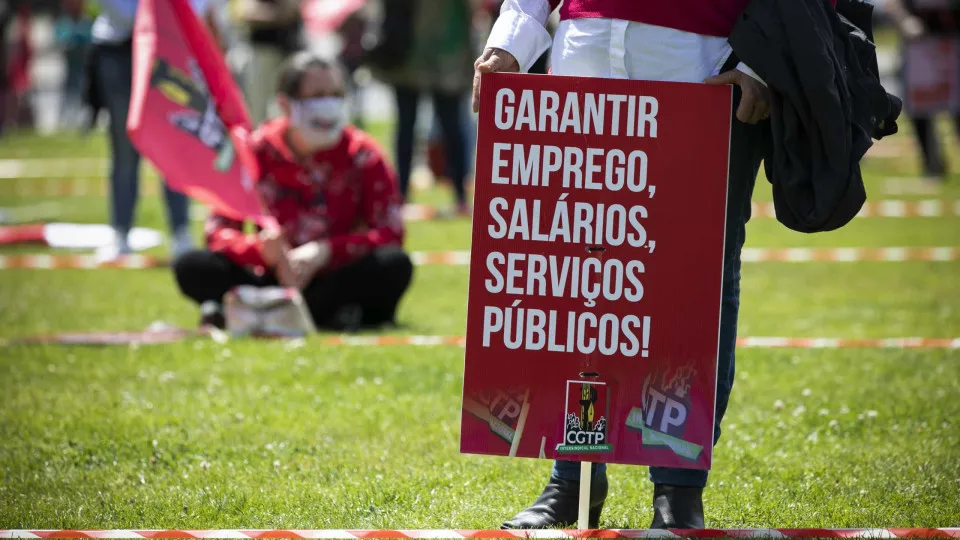
Under the slogan “All to Lisbon,” the demonstration organized by the trade union led by Tiago Oliveira, scheduled to start at 14:30 on Saturday, plans two pre-concentrations in the capital: public sector workers will gather at Amoreiras and private sector workers at Saldanha, both converging at Marquês de Pombal.
Tiago Oliveira, the secretary-general of the General Confederation of Portuguese Workers Intersindical (CGTP), expressed hopes that this would be a “significant moment of protest” and “a major assertion of workers’ struggle” against the draft proposal for labor law reform.
“It is necessary at this moment to signal to the Government that it must retract in the construction of the labor package,” insists Tiago Oliveira, criticizing the draft as “profoundly negative for the labor world.”
Recalling the demonstrations in Lisbon and Porto on September 21 and the Public Administration strike on October 24, the secretary-general of CGTP reiterated that the aim is to “bring workers to Lisbon” so that the “Government can perceive the true scale of the majority of Portuguese people’s indignation” and withdraw the package from discussion.
The executive “cannot be confined to a unidimensional reality,” without considering “the concrete reality of millions of workers who go to their workplaces daily, subsisting on low wages, daily hardships, job insecurity, deregulated work hours, and constant workplace pressures,” he emphasized.
To ensure worker participation who are employed on weekends, several strike notices were issued, particularly in sectors such as “commerce, service sector, restaurants, hospitality,” and “some industries,” added Tiago Oliveira.
CGTP has been persistent in asserting that the Government’s draft represents “a significant regression” in workers’ rights and highlights proposals for unconstitutional changes.
The Government’s draft for labor law revision, currently under discussion with social partners, proposes reviewing “over a hundred” articles in the Labor Code.
The proposed revisions—dubbed “Work XXI” and introduced by the Government on July 24 as a “profound” revision of labor legislation—address areas from parental issues (including changes in parental leave, breastfeeding, and gestational mourning) to flexible work, company training, or probation periods of work contracts. It also includes expanding sectors required to maintain minimum services during strikes.




